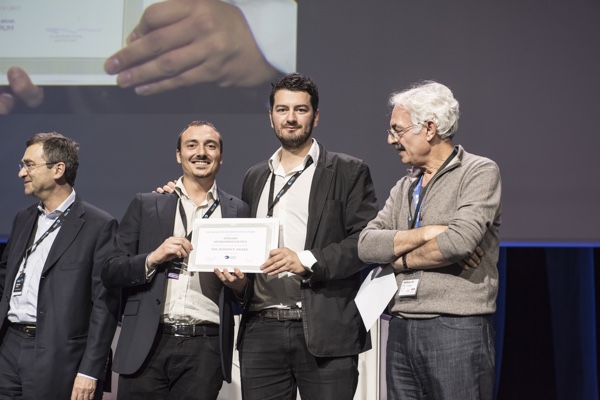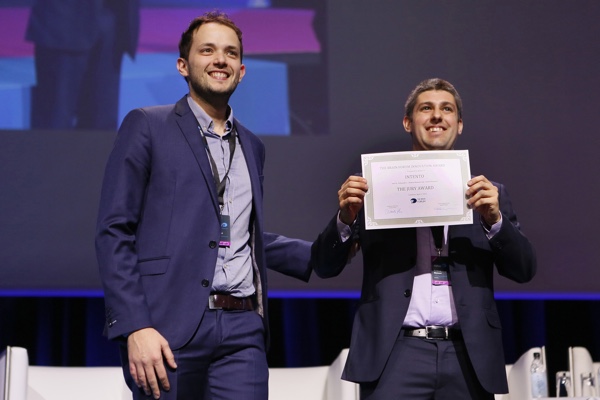Innovation Award Winners
Audience Award
SensArs Neuroprosthetics is an EPFL spin-off founded by Francesco Petrini, Stanisa Raspopovic and Silvestro Micera, who all have a long verified experience in peripheral nervous system interfacing and prosthetics. They invented SENSY, a neuroprosthesis that restore tactile sensations and diminishes the neuropathic pain in people with amputation or nerve injuries. The product is constituted by a sensorized skin which, through the implants in the residual nerves, delivers tactile information to the brain of the user that, hence, perceives the interaction with objects.

SensArs NeuroProsthetics, Dr. Stanisa Raspopovic and Dr. Francesco Petrini
Jury Award
Intento develops wearable neuroprostheses that promote brain reorganization and functional recovery in paralyzed stroke patients. Based on patent-pending innovations in neuromuscular electrical stimulation, our solution extends the applicability and benefits of the “Constraint-Induced Movement Therapy” - the most effective upper-limb rehabilitation approach for mildlyimpaired patients - to severely and completely paralyzed patients.

Intento, Dr. Andrea Maesani and Dr. Andrea Biasiucci
















